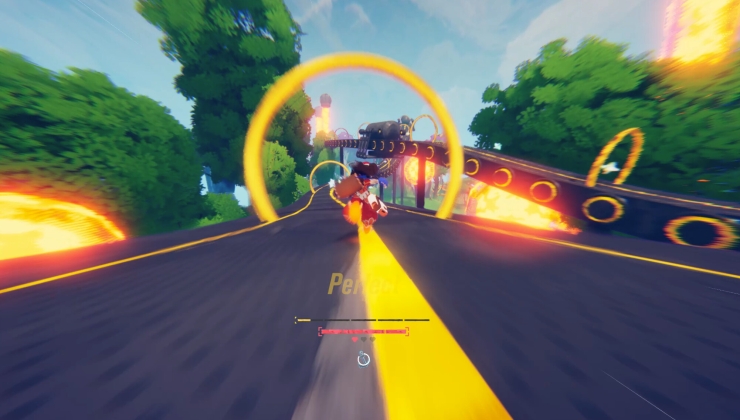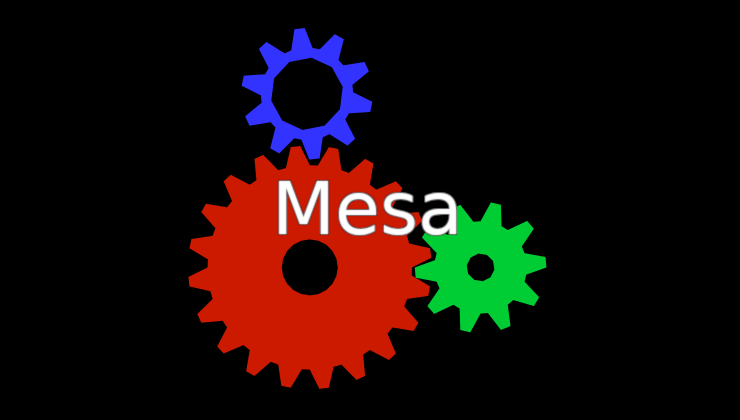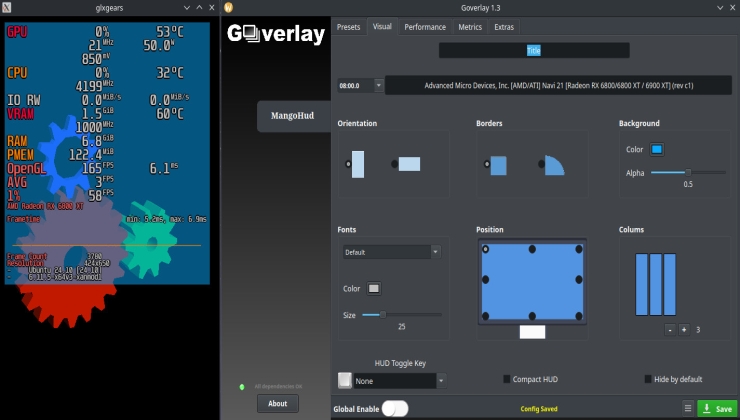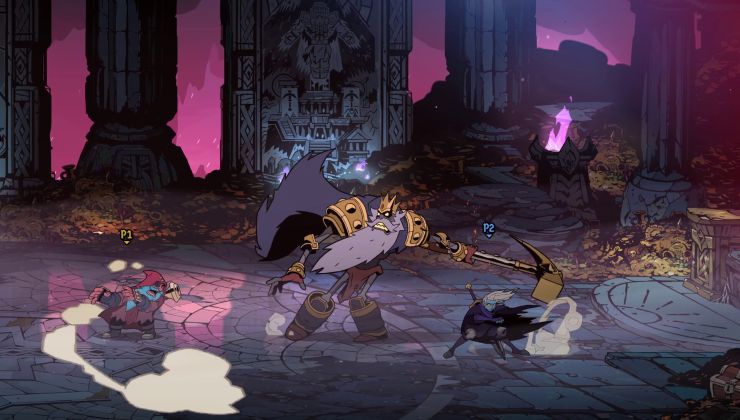The Solus distribution [Official Site] developers are a clever bunch, with their Linux Steam Integration [GitHub] software package and snaps, they are hoping to "relieve the pressure on distributions for supporting gaming".
When I say snaps, I'm talking the snap package system, specifically from version 2.28 onwards which supports something called "base" snaps. You can read more about the idea behind base snaps here.
Here's why they're doing it:
It's time to relieve the pressure on distributions for supporting gaming, by doing so through a single point of entry. A snapped LSI will ensure that the Steam/LSI combo would work identically on every distribution, *even if they don't support multilib*. It also ensures we can provide a "perfect" runtime, but ensure its up to date, optimised, and configured explicitly to support LSI & Steam.
If you're after an explanation in the most simple of terms, they have you covered:
TLDR: Single Steam/LSI image that takes all of the Solus gaming/Steam work, and provides it for everyone, on any distro.
They're also building a tool to debug the runtime, so they can ensure "ABI compatibility" with Steam and games themselves.
I certainly appreciate what they're doing, so it will be interesting to see what becomes of this. Perhaps in future this might help Valve directly with Steam, who knows what will happen.
On top of that, they recently released a new version of their Linux Steam Integration, which includes a new "vendor offender" mode, which can help games on open source drivers.
You can see the full post on G+ here. What do you think to this?
So... the whole docker/flatpak/snap thing... Isn't this in essence what .dmg files are on a Mac? The container itself has lots of files in it, but the user only sees the executable file
Remark: I have a lot of experience with Docker, have played a little bit with flatpack and no experience at all wit snap.
Well, you shouldn't compare containers with package formats. While they both serve a similar purpose, bringing software to your machine, the concepts are differently. It is not just about how packaging works, but mostly how it behaves. Isolation and layers are the keywords. Looking at Docker from a functional perspective you'll see more similarities with Virtual Machines, but without the guest OS overhead. Every container runs natively on the host machine, but has its own runtime, own file system and its own network adapter. You are able to run e.g. multiple mariadb/database server containers in different version on the same host with just a few commands (very useful for development when you need to simulate a bigger cluster on a single machine). I strongly advise to play a little bit with docker, it's very easy and once you got the difference between image and container the penny will drop. Flatpack is similar but with focus on UI applications. Same with docker, isolation makes the difference. You can run e.g. run Gnome-MPV on a Gnome 3.26 Runtime and Gnome Twitch on a Gnome 3.24 Runtime without any interference between the flatpaks.
All container solution seems overkill at the beginning, but once you got the gist they aren't. I certainly see the benefits, for both background processes via docker and UI applications via flatpaks.
See also: https://docs.docker.com/get-started/
I have used docker, the engineers love it at work. I agree it is great for development. But when moving to production where the hardware is there and you don't want multiple containers floating around, it is much better wothout them. Of course this all depends on how many different applications make your 'stack'. I set up FreeNAS with a bunch of jails and it was a pain getting all of the various IP addresses and services split up to talk to each other securely. I ended up ditching that and going with openmediavault, which supports docker as well, but it is easier for me to just throw it on the host system, since I don't need to separate them out.
Problem being that I have some Qt apps which haven't added Wayland support.
Lot's of apps don't have native Wayland support at this time, but if you are running Wayland, then you are also running the xwayland compatibility layer which should make non Wayland apps work for you. I have yet to find any app that doesn't work through xwayland, but sometimes you need to apply some workarounds, such as when the app need super user privileges.
You can use xeyes to see which apps are native Wayland and which apps are running through xwayland. If the eyes are able to track your mouse pointer within the appĺications window, then it's xwayland. Firefox, Steam and pretty much any game are example of non Wayland apps, while most official GNOME apps are native Wayland.
Last edited by Brisse on 17 Oct 2017 at 9:21 am UTC
My problems with Wayland are similar. That and there are unnecessary pushes to force people to use it when it clearly isn't ready. Debian a while back had changed the default session for gdm to start Gnome Shell with Wayland.Are you sure Debian did this, I would not expect such move from them?
Fedora did the same a few releases back. The decision to switching default to Wayland is a tough one. At some point you need to release software and bring in into the field, otherwise it wont mature at all. For a distribution like Fedora, being bleeding edge everywhere, this seems a valid move. More stable distributions like Debian should indeed hold back for a while.
Makes sense, but there's a problem. Red Hat are repeating their mistake with Gnome Shell. They released Gnome 3 when it was a torture device hardly suitable for occasional use, much less a full blown default.
With Wayland, what I'm hoping for, is that someone will convince them that if they restrict behaviour too much people will start hacking around it. They justify it, by saying "This will allow keyloggers to work" or "This is a vulnerability, so that people could use stuff remotely".
The thing is: on a mac or Windows, if I have a keylogger - it's probably a virus. On Linux, the only keylogger that CAN be on my system, is the one I wrote, or installed explicitly. I want to be able to use a phone as a presenter, or a mouse. I want to be able to use my machine however I want, and if Wayland becomes the Standard and tells me "No you can't", I would literally have more freedom on Windows.
I have used docker, the engineers love it at work. I agree it is great for development. But when moving to production where the hardware is there and you don't want multiple containers floating around, it is much better wothout them. Of course this all depends on how many different applications make your 'stack'. I set up FreeNAS with a bunch of jails and it was a pain getting all of the various IP addresses and services split up to talk to each other securely. I ended up ditching that and going with openmediavault, which supports docker as well, but it is easier for me to just throw it on the host system, since I don't need to separate them out.
As usual, it depends ;) Docker and similar software do solve some specific problems, but are _not_ the solution for everything. Know your tools and especially know what they are not made for ;)
Software containers aren't a replacement for packages. But in certain situation, when you have a very different lifecyle and update frequency between your application and your host, when you need very fast CI/CD or when your runtime dependencies are not trivial, they solve a lot issues for you, especially in bigger environments.
(That said, they are a lot of valid concerns against Docker in production. Give it time, it is still a relatively new technology.)
Back to the topic: Having a flatpak steam environment or the Steam runtime with a stable set of libraries is imho a requirement for a gaming company like Feral. You can't expect them to support every game they have published on every new Linux flavor until the end of time. I have seen people blaming Feral in public that their games aren't yet compatible with Ubuntu 17.10 (that isn't even released yet!). This is just stupid/unfair and hopefully something like flatpack can help here.
Last edited by jens on 17 Oct 2017 at 6:44 pm UTC
Makes sense, but there's a problem. Red Hat are repeating their mistake with Gnome Shell. They released Gnome 3 when it was a torture device hardly suitable for occasional use, much less a full blown default.Why not switch to CentOS or another LTS focused distribution? A project with the size of Wayland or Gnome Shell needs years with feedback from the field to mature. There are other distributions if you prefer not to be part of this process.
Though I agree that state and intention of a first release should be transparently and honestly documented.
Last edited by jens on 17 Oct 2017 at 8:29 pm UTC
Makes sense, but there's a problem. Red Hat are repeating their mistake with Gnome Shell. They released Gnome 3 when it was a torture device hardly suitable for occasional use, much less a full blown default.Why not switch to CentOS or another LTS focused distribution? A project with the size of Wayland or Gnome Shell needs years with feedback from the field to mature. There are other distributions if you prefer not to be part of this process.
Though I agree that state and intention of a first release should be transparently and honestly documented.
Frankly, it hurts me very little. I mostly live in xmonad, and i3. And as far as I'm concerned, neither of them plan on Wayland support (they actually need most of that "Redundant" functionality in X).
That said, I occasionally dabble with KDE and Gnome, just to keep up with the field. KDE changes are mostly under the hood, and mostly improvements and additions. Its Wayland branch is surprisingly useable, sans a few scaling issues, which are easily fixed.
If you really want a full Wayland experience, you should try Gnome Shell. It's a mixed feeling. On the one hand, it runs better than it did on X, and for good reason. But, Much like Gnome Shell, it has insane defaults, and developers which refuse making changes to those defaults possible.
The direction they took is concerning, and I very much hope that it's going to go away. It's already a default for Gnome, and Gnome is a default on many computers. I don't want for Linux to try and become Windows or Mac. It doesn't have the resources, and frankly it means that I've wasted 10 years of my life, with nothing to show for it.
---
If this gets popular, we will not get video game ports because you can get inferior "ports" for free; and it probably can be automated.
Last edited by Samsai on 28 Oct 2017 at 6:32 am UTC








 How to set, change and reset your SteamOS / Steam Deck desktop sudo password
How to set, change and reset your SteamOS / Steam Deck desktop sudo password How to set up Decky Loader on Steam Deck / SteamOS for easy plugins
How to set up Decky Loader on Steam Deck / SteamOS for easy plugins
See more from me